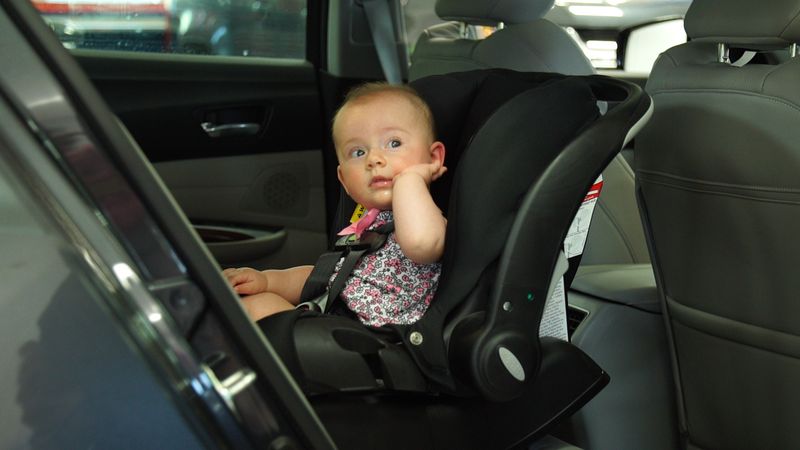11 Boomer Parenting Practices That Would Surprise Today’s Parents
Parenting styles have changed dramatically over the last few decades. Baby Boomers raised their kids with approaches that seemed perfectly normal at the time but might raise eyebrows today. The shift reflects our evolving understanding of child development, safety concerns, and cultural attitudes. Let’s look at some common Boomer parenting practices that now spark debate.
1. Kids Roaming Free Until Dark

Neighborhood freedom was once the hallmark of childhood. Boomer parents routinely let their kids leave home after breakfast with simple instructions to return when the streetlights came on.
No cell phones, no tracking apps, no constant supervision. Children biked to friends’ houses, explored woods, and ventured miles from home without adults knowing their exact whereabouts.
Today’s parents, concerned about stranger danger and safety, typically maintain closer tabs on their children’s locations. The independent wandering that shaped many Boomer childhoods has largely disappeared, replaced by scheduled activities and supervised playdates.
2. Leaving Kids in Cars While Shopping

Running errands meant parking the car and letting sleeping babies continue their naps while parents shopped. Kids waited patiently (or not so patiently) as parents ducked into stores for “just a minute” that sometimes stretched much longer.
Windows might be cracked open, but air conditioning and heat were luxuries not extended to parked vehicles with children inside. Older siblings often supervised younger ones during these waits.
Today, leaving children unattended in vehicles is illegal in many places, with good reason. We now understand the dangers of rapidly heating cars, potential abductions, and other safety concerns that make this once-common practice a serious no-no.
3. Sending Kids to School Sick

Fevers, coughs, and runny noses rarely kept kids home from school under Boomer parenting rules. Unless a child was seriously ill, they were expected to tough it out in the classroom.
Parents working full-time jobs couldn’t easily take days off for mildly sick children. Schools had minimal policies about illness, and sharing germs was considered a normal part of childhood that built immunity.
The COVID-19 pandemic dramatically shifted this mindset. Today’s parents face pressure to keep even slightly sick children home, with schools enforcing strict illness policies. The casual approach to sending sick kids to school is now viewed as inconsiderate to others.
4. No Sunscreen or Sun Protection

Sunburns were practically a summer rite of passage under Boomer parenting. Children played outdoors for hours without sunscreen, hats, or sun-protective clothing.
A deep tan signaled a healthy, active child who spent plenty of time outside. Parents might apply tanning oil to help kids achieve that golden glow faster, unaware of the damage occurring beneath the skin.
Scientific understanding of skin cancer risks and UV damage has transformed sun protection into a parenting essential. Modern parents slather children with high-SPF sunscreen, dress them in UPF clothing, and schedule outdoor activities around peak sun hours – practices that would have seemed bizarre to previous generations.
5. Gender-Rigid Parenting Approaches

Boys and girls lived in distinctly separate worlds under Boomer parenting. Parents strictly enforced gender norms through toys, clothing, activities, and behavioral expectations.
Boys who showed interest in “girl things” faced correction, while tomboy girls eventually needed to “grow out of it.” Career aspirations, household responsibilities, and emotional expression all followed rigid gender guidelines.
Contemporary parenting increasingly embraces gender-neutral approaches, allowing children more freedom in their interests and self-expression. The strict gender boundaries that seemed natural to Boomer parents now appear unnecessarily limiting to many modern families.
6. Sink-or-Swim Approach to Problems

Children’s social difficulties received minimal parental intervention in the Boomer era. Bullying, friendship troubles, and classroom conflicts were considered normal parts of growing up that kids needed to handle themselves.
“Work it out yourselves” and “toughen up” became common parental responses to children’s emotional struggles. Parents rarely contacted teachers about social issues or stepped in to mediate peer conflicts.
Today’s more involved parenting style includes greater advocacy for children facing social challenges. Modern parents typically maintain closer communication with schools and are more likely to intervene in bullying situations, a shift that some view as necessary protection while others see it as overparenting.
7. Authoritarian “Because I Said So” Parenting

Questioning parental authority was simply not tolerated in many Boomer households. “Because I said so” served as the final word in family decisions, with children expected to obey without explanation or discussion.
Parents made unilateral decisions about everything from bedtimes to future careers. Children’s opinions carried little weight in family matters, and talking back resulted in swift consequences.
Modern parenting often emphasizes communication, explanation, and age-appropriate inclusion in decision-making. While clear boundaries remain important, the rigid hierarchy of Boomer parenting has softened into approaches that respect children’s perspectives while maintaining necessary parental authority.
8. Kids Rarely Wore Helmets or Safety Gear

Bicycles, skateboards, and roller skates came with virtually no safety equipment during the Boomer parenting years. Children zipped down steep hills on bikes with no helmets, knee pads, or elbow protection.
Playground equipment stood on hard concrete or packed dirt rather than cushioned surfaces. Trampolines lacked safety nets, and swimming pools often had no fences or alarms to prevent unsupervised access.
Safety consciousness has dramatically increased in modern parenting. Today’s children wear protective gear for activities that previous generations did with reckless abandon, reflecting both improved understanding of injury prevention and changing attitudes about acceptable risk.
9. Limited Dietary Concerns or Restrictions

Mealtime in Boomer households followed simpler rules: eat what’s served or go hungry. Food allergies received minimal attention, picky eating earned little sympathy, and nutritional content wasn’t scrutinized.
Sugar flowed freely at breakfast with sweetened cereals, lunches featured white bread sandwiches with processed meats, and dinners often came from boxes or cans. Fast food represented a treat rather than a health concern.
Today’s parents navigate complex nutritional landscapes, from allergen awareness to concerns about additives, sugar content, and organic options. The casual approach to childhood nutrition that characterized Boomer parenting has given way to much greater food consciousness.
10. Minimal Involvement in Education

Homework happened without parental oversight in most Boomer households. Parents rarely checked assignments, communicated with teachers only at scheduled conferences, and generally trusted schools to handle education without their input.
Report cards might bring consequences, but the day-to-day learning process belonged to schools and children. Many parents had limited knowledge of curriculum details or teaching methods.
Contemporary parents typically maintain closer involvement with education through homework help, regular teacher communication, and online grade monitoring. The hands-off educational approach of Boomer parents contrasts sharply with today’s expectation that parents will actively partner with schools.
11. Children Expected to Act Like “Little Adults”

Formal behavior expectations started young in the Boomer parenting era. Children dressed in miniature adult clothes for special occasions and were expected to display adult-like manners in public settings.
“Children should be seen and not heard” remained a guiding principle in many families. Kids sat quietly through adult gatherings, religious services, and restaurant meals with little accommodation for their developmental needs.
Modern parenting more readily acknowledges children’s developmental stages and the unreasonableness of expecting adult behavior from young children. Kid-friendly spaces, activities, and expectations have replaced the pressure to perform as “little adults” that characterized earlier generations.

Comments
Loading…